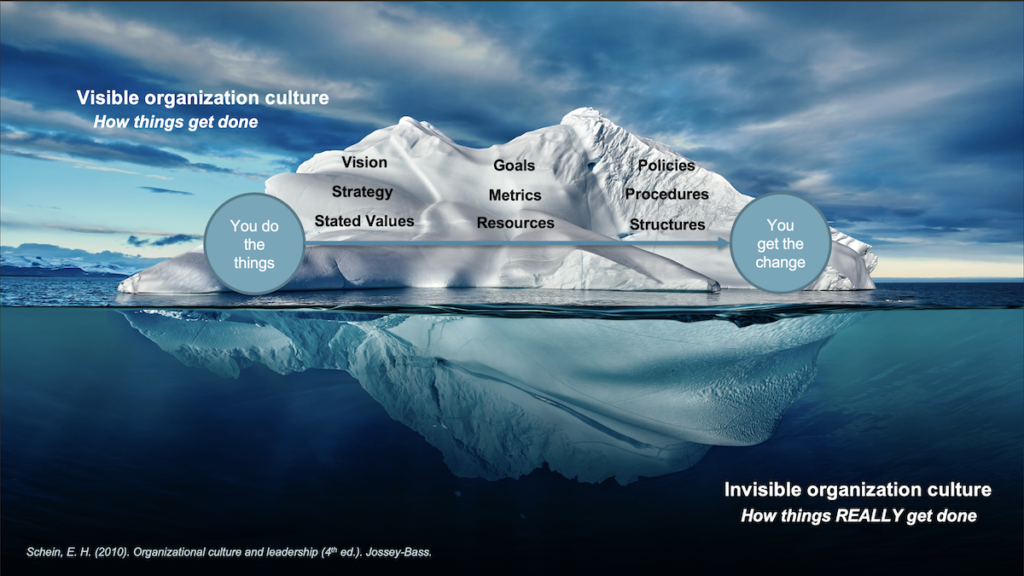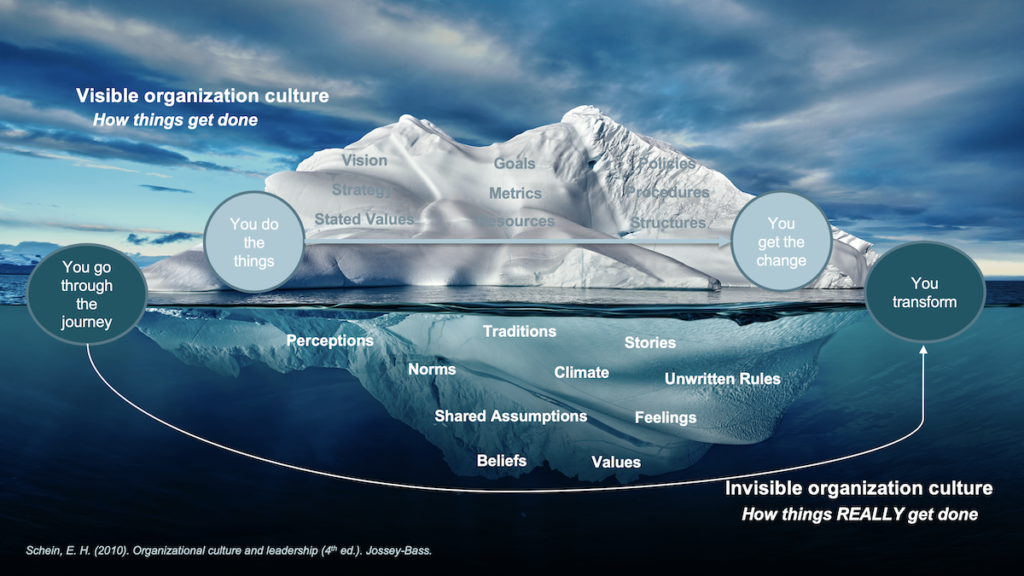There I was, listening to an amazing panel discussion at the International Conference on Consciousness-based Leadership and Management, when one of the speakers said something that made me sit bolt-upright as their words burned themselves into my brain:
“The journey is inward for external excellence.”
Dr. Sunita Singh-Sengupta
Woah. Dr. Singh-Sengupta was speaking about the need for integral consciousness in today’s leadership and management, but she could have been speaking about that which resides within my heart when it comes to organizational transformation. With her statement, she also pinpointed my dissatisfaction with organizational change. (And yes, I know I’m about to do some painting with a really broad brush.)
I think of change management as typically occurring above the waterline of Schein’s (2010) iceberg of organizational culture: you do the things, you get the change. You set the vision, craft the strategy, establish the goals and metrics, pull the team together, have the meetings, create the communication strategy, put the posters up in the office, implement the procedures, and voilà! You get the change! Right? Easy peasy, lemon squeezy.

Except you don’t.
So you do things differently to get a different change. Or you turn to the next hot management book and you’ll get the change.
Except….you still don’t.
I think this is because management approaches are treated as external applications which relate to changing behavior. And what can change can be changed back: heck, just look at my hairstyles over the years for proof of that one!
Change management (speaking in generalizations here) is not touching the deeper surface, the true drivers of motivation and behavior. The bottom of Schein’s cultural iceberg. That scarier, personal journey that leaders navigate to better know themselves.

You know, all the stuff that organizations just LOVE to dive into. (Kidding!)
A management approach won’t mean shit as long as it’s treading water to avoid what lies beneath.
This is why I’ve moved away from organizational change or change management or management approaches in general to embrace organizational transformation via inscendence.
Perhaps the focus on management (that above-the-water-line stuff) needs to shift to a focus on leadership, for lasting purpose. Instead of transcending broken processes and hoping they’ll just go away, we must inscend into darker waters and do the work within ourselves to help guide our organizations through their own darker waters to transformation.


